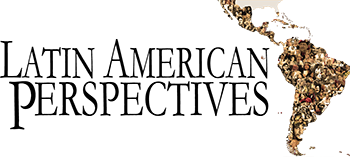Modern Slavery and Human Trafficking in Latin America
by Daniela Issa
Very few scholars in Latin America deny the existence of modern slavery today, but when the literature began denouncing and analyzing it in the late 1990s1 as a practice very much present in the world the phenomenon was met with astonishment. Because of slavery’s being a historical practice, “vestiges” of it seemed a more plausible explanation than the purported reality of “modern slavery”—a construction seemingly leading to an oxymoron in the social imaginary. For one thing, this astonishment presupposed the incompatibility of slavery in any form with the promises of Post-Enlightenment modernity associated with emancipation and individual liberties. Further, modernity’s scientific and technical progress is invariably associated with the moral and ethical progress of humanity and the implication of a better world, a different stage of historical development. In the past couple of decades, however, the literature has come to be quite homogeneous in its acceptance of the phenomenon in spite of the apparent paradox of the modern, neoliberal world order: assurances of more freedom, in particular individual liberties, on the one hand and extreme exploitation of labor on the other.
CONTINUE READING THE FULL ARTICLE HERE


No comments:
Post a Comment